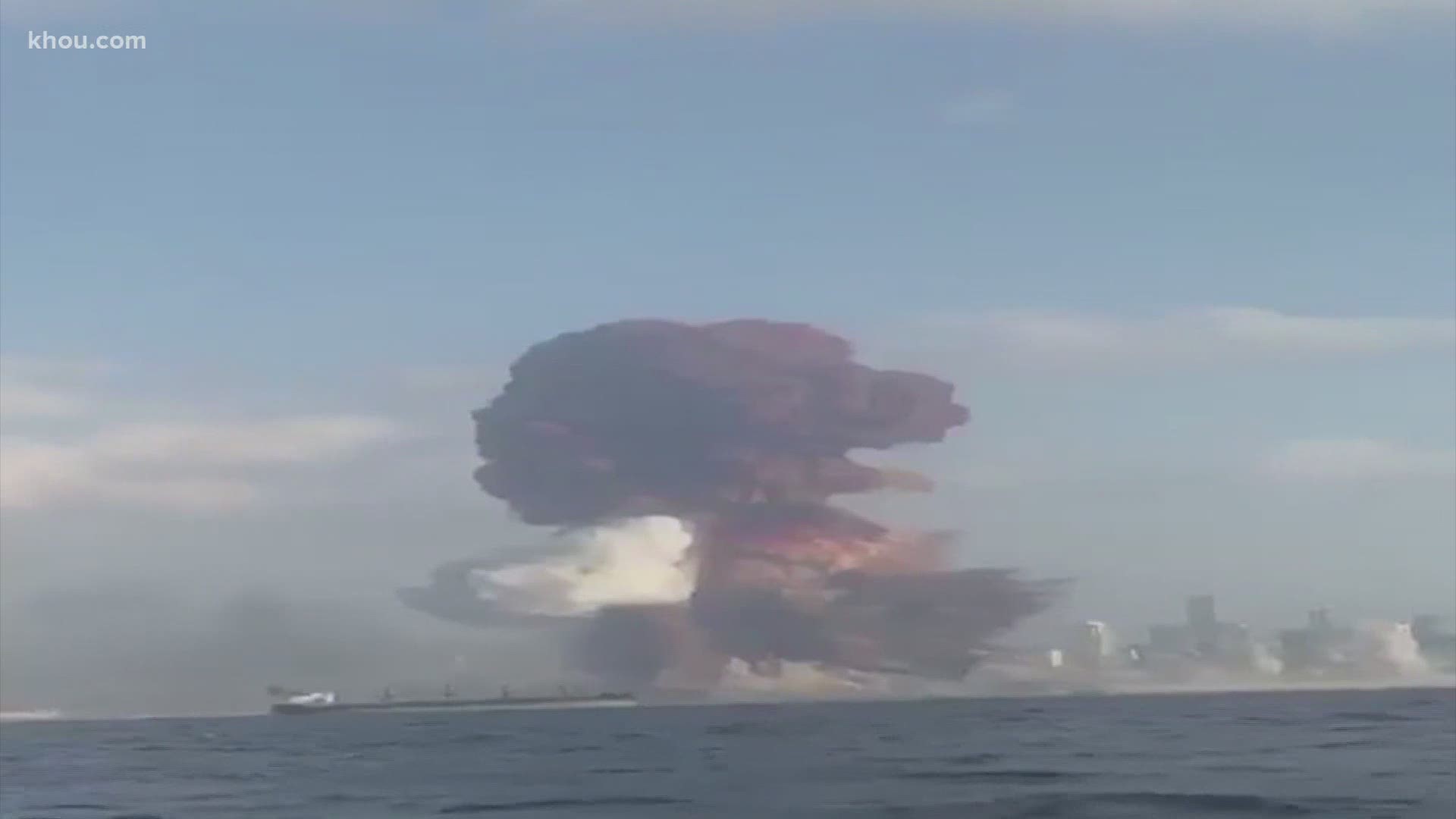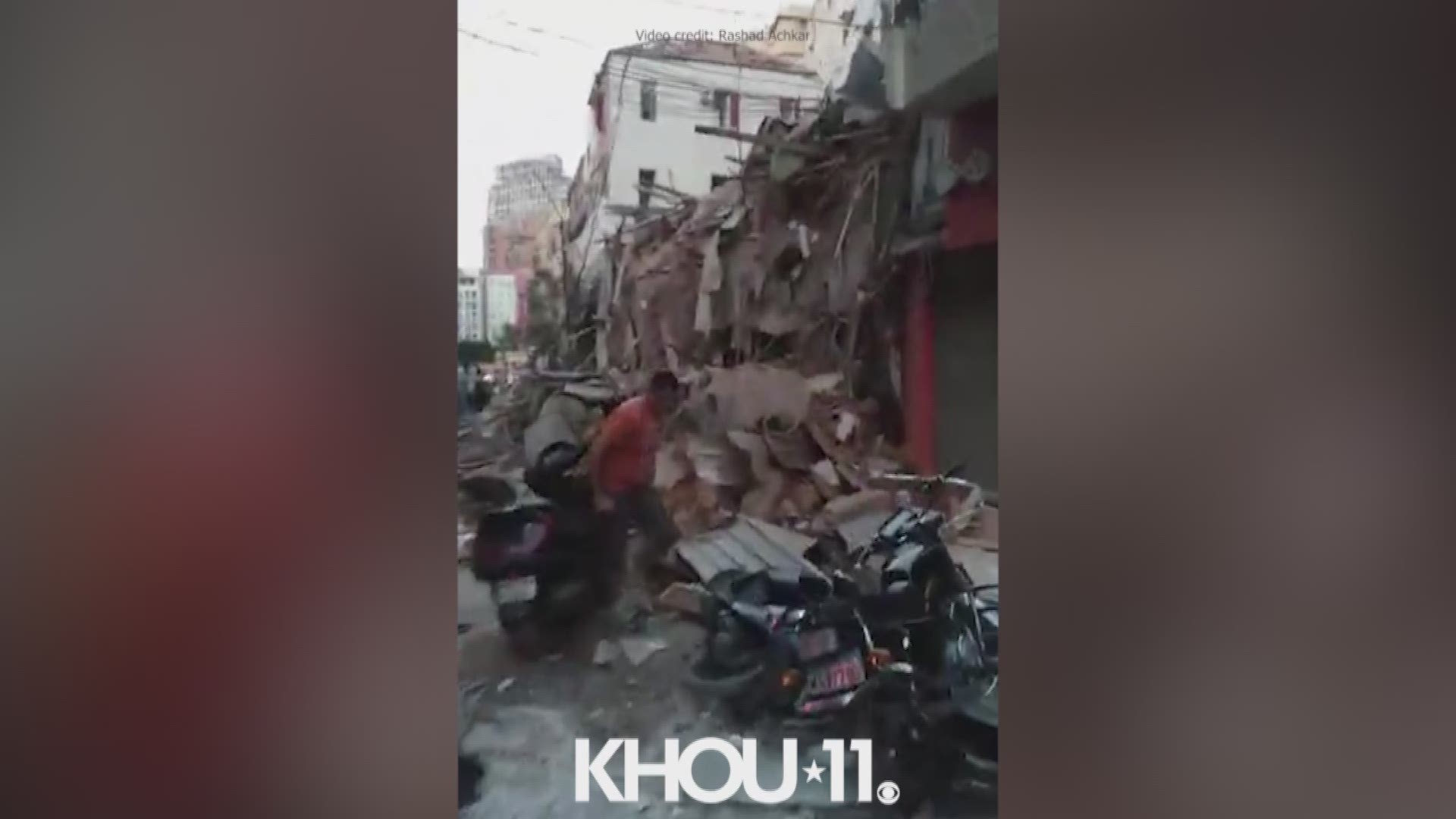HOUSTON — Members of Houston’s Lebanese community are scrambling to get in contact with loved ones in Beirut after powerful explosions rocked the capital city on Tuesday. Dozens were killed and at least 3,000 were injured.
"It’s like my heart is not stopping, because I don’t know, did I forget anyone?” Christine Achkar said when she was checking on her loved ones after she got the news.
Achkar grew up in Beirut and now lives in Houston. She's a fitness and wellness expert and said her mother, sisters and brothers still live near the port where the explosions took place.
She said the family printing business is in shambles and her mother’s home is badly damaged, too.
Her mother described the blast to her over the phone.
"She said it was like a Hiroshima feeling,” Achkar said.
She also said her nephew was injured.
“My sister's son has glass scattered on his skin, so he was bleeding," Achkar said.
But she said other than the minor injuries, her family and friends are OK.
A Houston cancer doctor was also checking on loved ones in Beirut after the blast. Dr. Philip Salem grew up in Beirut and now runs a cancer treatment center in Houston.
"My prayer goes to my people in Lebanon. I hope the Lord will bless them and protect them," Salem said.
Salem found out some of his relatives were injured, but thankfully, only minor injuries. He now expects the Lebanese community in Houston to send help to Beirut.
“This is the least contribution that we can make, financial assistance," Salem said.
It's estimated that about 30,000 to 40,000 people make up the Lebanese community in Houston, many of whom are still trying to recover from hearing the news.
"I was bombarded with videos from friends back home," Gus Chalhoub said. "I was shook, I was shook to the core basically."
Chalhoub was born in Lebanon. His mother and other relatives still live in and around Beirut. His family is OK, but the country is devastated.
The tragedy is reminiscent of the 1947 explosion in Texas City. That blast was also caused by ammonium nitrate. More than 500 people were killed.
"It used to be called the Paris of the Middle East," Wadih El Hajj said.
Hajj is the president of Houston's American Lebanese Cultural Center. His nieces were injured in the blasts while they were working downtown.
"They felt everything rushing towards them, the windows and everything," he said. "And they all suffered some kind of injury."
There are still a lot of questions and for families who are thousands of miles apart, it's painful to wait for answers.
"For the moment, this is the only thing we can think of. Why did it happen? Why now? And what’s going on?" Chalhoub said.
The Lebanese Cultural Center is planning to hold a vigil and are offering to help any way they can.


